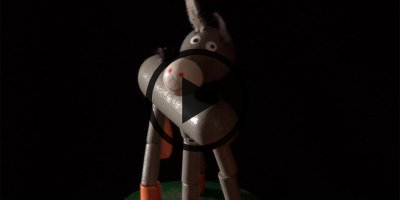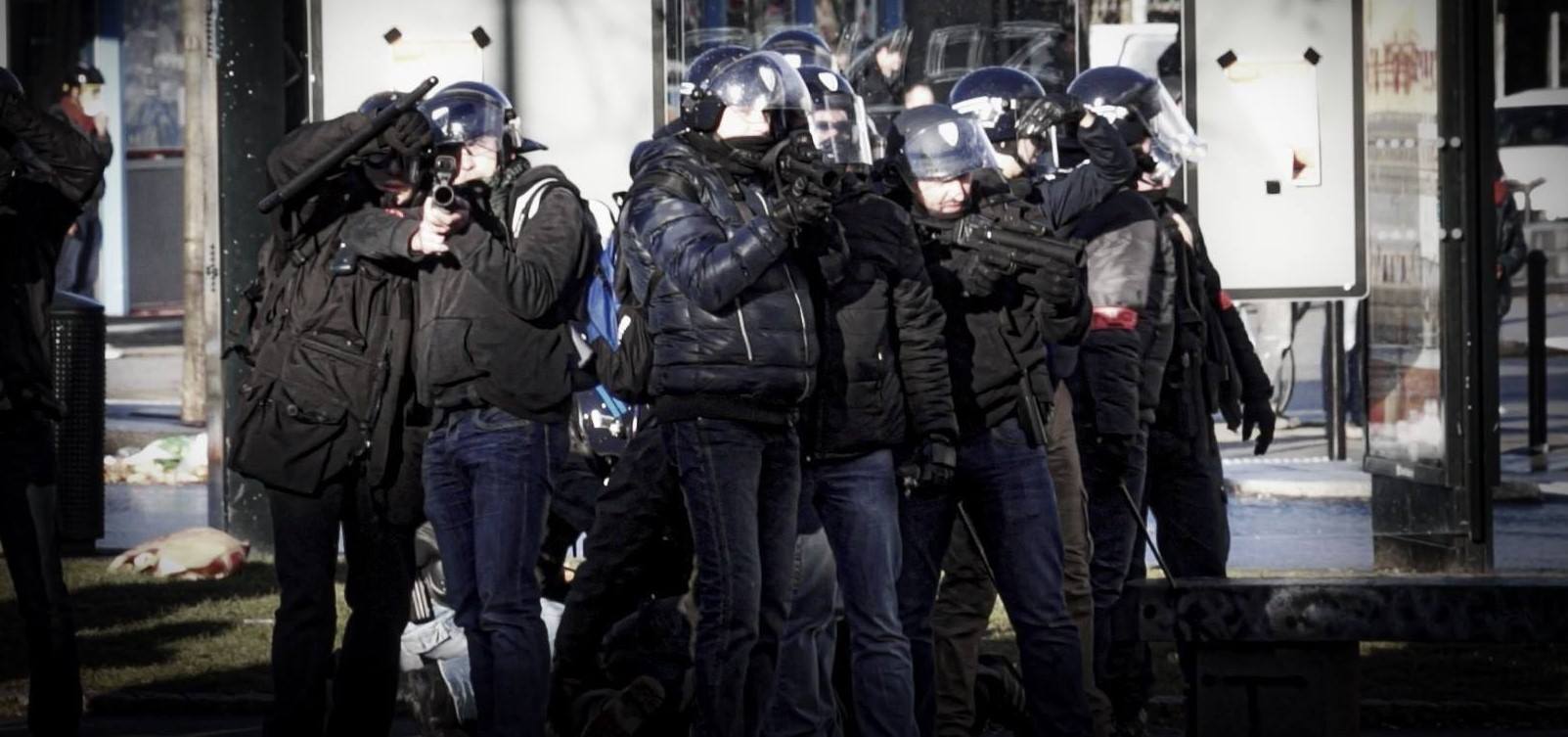[Version française à lire ici.]
When Julian Assange took refuge at the Ecuadorian embassy 2,487 days before his arrest to seek political asylum, it was on the grounds that the United States wanted him dead. There was a great risk - he said - that the founder of WikiLeaks would be extradited - via Sweden - to the United States, where a « grand jury », a special court whose proceedings are kept secret, was beginning an investigation for « conspiracy for espionage ». Some found this to be the basis for an eternal, irreconcilable hatred towards Assange, on the grounds that he had thus tried to escape interrogation by the Swedish judicial authorities in the context of an investigation for rape and sexual assault [1]. In fact, since his arrival at the embassy, he has proposed to the Swedish authorities to come and interrogate him (interrogation abroad or via video is the norm for Sweden, including for blood crimes). As journalist Stefania Maurizi subsequently demonstrated by obtaining the publication of hundreds of pages of their correspondence [2], the Swedish authorities, in coordination with the British authorities, have for years postponed this interrogation. It finally took place in 2016, after which the investigation was closed.
Assange’s arrest on Thursday, April 11, 2019 should sound like a harsh wake up call. The publication following a indictment and extradition request by the US confirms the initial hypothesis, meanwhile validated by the Ecuadorian government and the UN : The risk of Assange being extradited to the United States was very real from the beginning. Now being prosecuted in the USA for « conspiracy of computer fraud » with Chelsea Manning, this seemingly benign accusation seems to be just the tip of the iceberg. An accusation that does not seem to be related to the defence of freedom of expression or even journalism could demobilize his supporters (after all, a maximum of 5 years to spend in prison when he has just spent 7 years, on his own initiative locked up at the embassy...). In reality, the threat is much more brutal : if he were to set foot in the United States in the case of extradition for « computer fraud », it is very probable [3] that other charges could then be added - including the famous « espionnage conspiracy » - and that Assange could spend his life behind bars, or even worse....
If Assange risks so much, it is because he has, through the publication over the years of historical documents exposing the lies and crimes of nations, caused embarrassment at the highest level, challenging the powerful, thus becoming the arch-enemy [4] for the USA.
During its 13 years of existence, WikiLeaks has constantly poked a soft-bellied, crumbling investigative journalism. By daring to publish impenetrable confidential reports, then entire caches of administrative, military and diplomatic documents, WikiLeaks has demonstrated to the world the realities of an information asymmetry that states use to hide their crimes. WikiLeaks showed us, unfiltered, the states’ routine to oppress in silence, far from any attention in the shadow of acronyms and complex administrative rules. The initial bet was that everyone, whether or not bearing a press card, could participate in endeavours aimed at exposing and worrying the powerful through the collective analysis of confidential documents. Over the years, WikiLeaks’ strategy has evolved to maximize the impact of its releases. Partnerships have been forged with press leading names, forging international alliances, sometimes between mastodons and micro-organisms, to ensure that these documents are read and disseminated through the prism of the mainstream press. Through its pioneering role in data-journalism, WikiLeaks inspired methods and means for a new era of investigation.
From the « collateral murder » video detailing in all its horror the « gamification » of the war and the routine murder of civilians ; to the Guantanamo Files exposing the institutionalization of torture ; to the Syria Files exposing the corruption of the El Assad regime ; to the diplomatic cables of the US State Department exposing 30 years of state lies ; through the DNCLeaks and Podesta emails - a Watergate to the power of 10 - revealing that the ruling party of candidate Clinton was conspiring against its own members in intrigues reminding the worst moments of Staline’s regime ; to Vault7 exposing the CIA’s latest methods for infiltrating any computer equipment worldwide ; not to mention numerous documents relating to international agreement negotiations (ACTA, TTIP, etc.) ; WikiLeaks has consistently uncovered obscure mechanisms by which states emancipate themselves from international law, their constitutions, the defence of their citizens and respect for human dignity.
For an entire generation nurtured by the dream of an Internet that would « auto-magically » make individuals freer and spaces more democratic, WikiLeaks has acted like a cold shower, using the digital tools as a window into a brutal, secret world in which empires betray, lie, torture and murder. An express path, without filters, towards geopolitical awakening, sometimes arid like a file in plain text format, brutal like a rocket fired from an Apache combat helicopter....
Why is it then that some people still doubt the profoundly journalistic nature of WikiLeaks ? An entity that protects its sources (none of them have so far been compromised, while Chelsea Manning has unfortunately been denounced by a snitch to whom she confided...) ; that publishes documents of general interest revealing crimes and lies ; that published in 13 years a treasure trove of hundreds of thousands of documents, all authentic ; that forges partnerships with the most renowned press groups ; that received numerous awards for journalists. Yet some people today seem fiercely opposed to defending Assange as a journalist.
Far be it from us to sign a blank cheque to Julian Assange, to exonerate him from any defect, to validate his whole personality and everything he has expressed. Anyone who is locked up for 7 years in a room in a small apartment without a balcony serving as embassy, without ever seeing daylight or stepping outside, would see their physical and mental health deteriorate. Any of us under such conditions would be likely to tweet nonsense late at night and make enemies... but neither is it about justifying what sometimes appears to be hateful, misogynistic, conspirationist or simply stupid remarks delivered by Assange on Twitter.
It is a question of understanding the political and mediatic mechanisms of a character assassination, the slow assassination of a personality through its reputation over time. Since 2010 and the first publication of WikiLeaks likely to undermine the legitimacy of the US government, a horde of twitter accounts, journalists at orders, politicians and useful idiots have constantly spread lies, omitted facts and pinpointed every detail that would help destroy Assange’s image as a herald of free information and combative journalism. Entire articles dedicated to his hygiene, testimonies of trainees who spent 3 days in his entourage reporting supposedly authoritarian, narcissistic, manipulative traits, etc.. And of course, in the background, the Swedish affair and the instrumentalization of two women to paint the image of a detestable man, replacing in columns and in minds over time the uncompromising political line and strategy of the organization he created.
Certainly, Julian Assange by mixing the cause of his survival with that of his organization has sometimes not helped by taking up so much space. But it must be admitted that these causes are irrevocably linked by the eternal tactics of the powerful, which consist in attacking the messenger to divert attention from the message, and that for Assange it was an elementary survival strategy. The day when attention turned away from him would have been the right time for the British police to capture him with impunity and hand him over to US retaliation.
In conclusion, and as Edward Snowden, Glenn Greenwald, Reporters Without Borders, Reporters Without Borders, The Guardian and many other institutions [5] although more often complacent than adversarial towards the powerful have already stated, Assange’s arrest is a blow to freedom of information as a whole. His capture was wanted at all costs for the example, in defiance of international law and promises made in the past by an Ecuadorian government clearly bought by the US (Ecuador opportunely received a loan of 10 billion from the IMF [6]...). Throwing Assange in prison aims to discourage anyone from following his inspiration to publish without compromise what exposes the crimes and lies of the powerful. Let us make no mistake about it, and beyond the disagreements with some of Assange’s words, it is urgent to recognize the significance of WikiLeaks’ legacy : what it inspires for the present and for the future of a free press and free information that would collectively and durably restore power relations, worry the dominants and hope to someday make them pay for their crimes and lies.
Let us defend Assange against his extradition by the United Kingdom and against his dismal fate in the United States ! Let us defend the human being and the journalist without distinction, for what he has created, for what he represents and for what he inspires every day since the birth of WikiLeaks !






